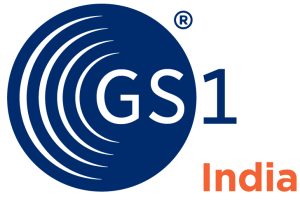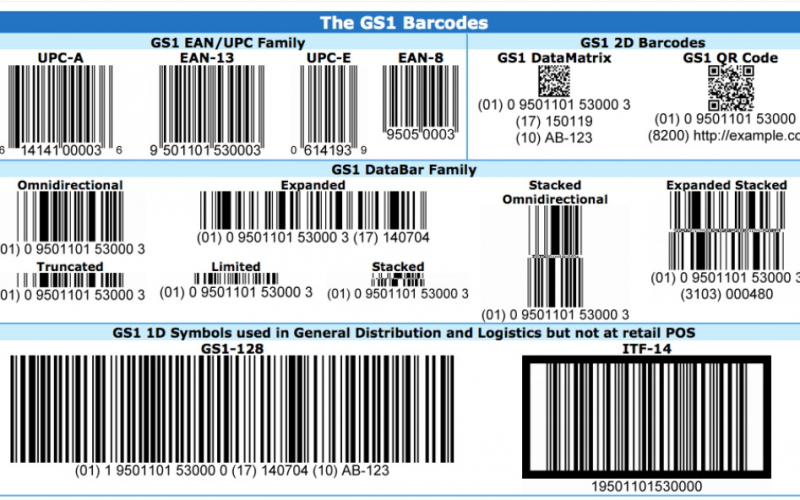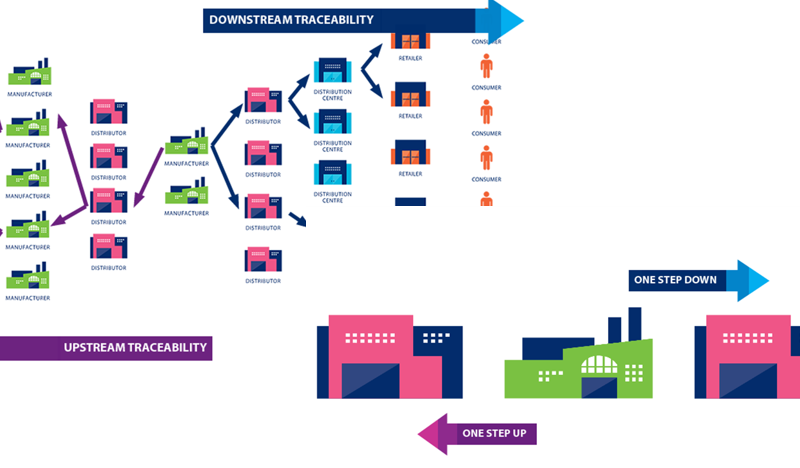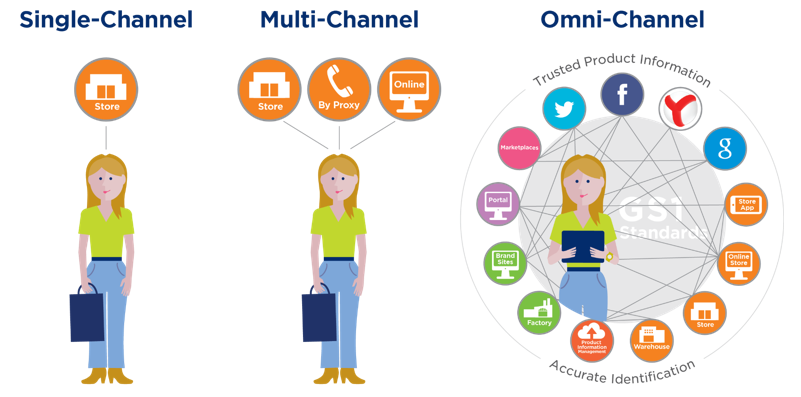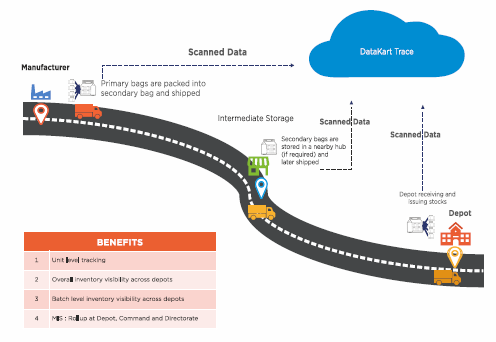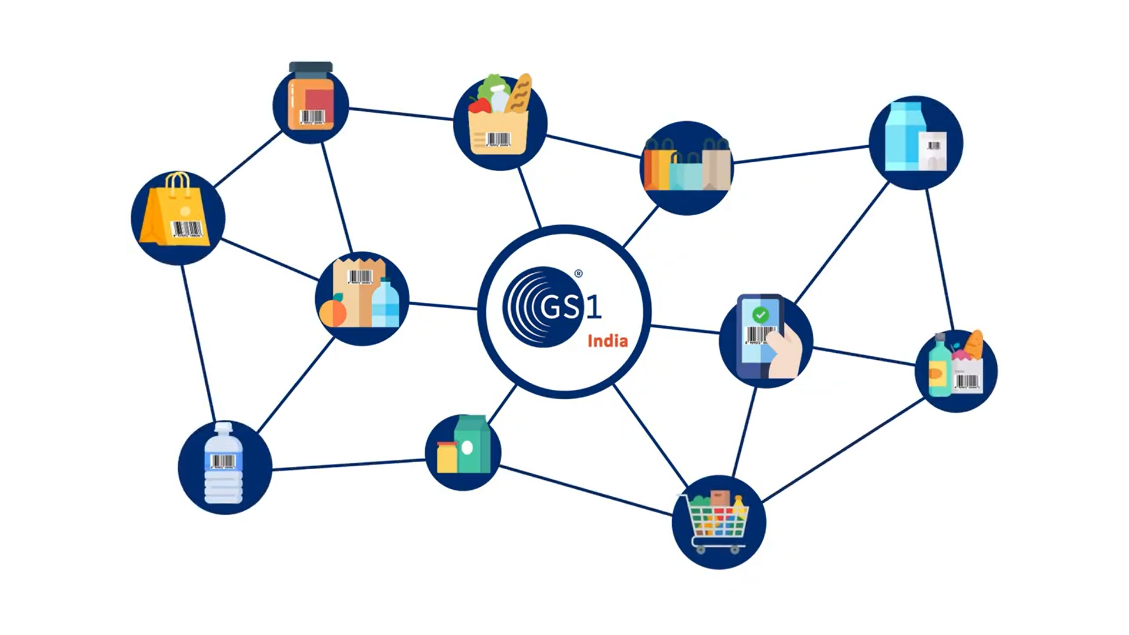Getting Started with Barcoding
This blog will give you an overview about product barcodes, types of barcodes, benefits of barcodes, and how GS1 India can ensure that you get unique identification for your products.
Contents:
- What are Barcodes?
- Types of Barcodes
- Unique Barcode Numbers – GTIN
- Benefits of unique barcode numbers
- Role of GS1 India in ensuring uniqueness in product codes barcode
Barcodes play a very crucial role in a country’s economy, especially in the context of supply chain management and retail. Most of the businesses require Barcodes as a tool to manage supply chains for better tracking of their products. You must have noticed that every time we buy something in the supermarket, the seller scans the barcode on the product to retrieve its information.
What are Barcodes?
Today most of the products you see in the market have barcodes. Barcodes are machine-readable symbols which are printed on product packaging. The barcodes are embedded with barcode numbers – numeric codes that give unique identification to the product.
Types of Barcodes
There are various types of barcodes used in the industry. Some popular barcode forms are EAN barcode (linear/1-dimensional barcode), QR code, and Datamatrix (2-dimensional barcodes).
EAN barcodes are mostly used on products for point-of-sale scanning, where the unique code embedded in barcodes is linked with product information like manufacturing and expiry date, manufacturing locations, product attributes, and ingredients, etc. QR codes are majorly used in applications related to entertainment, retail, advertisement, and transactions.
One-dimensional (1D) barcodes / linear barcodes
One-dimensional barcodes also known as Linear barcodes convert data with varying-width vertical lines and spaces, it reads horizontally, and accommodates up to 85 characters, but requires more characters for additional data.
Some of the common examples of 1D Barcodes are explained briefly below –
- Code 39 – CODE 39 barcodes can encode up to 43 characters, including letters, numbers, and some symbols, making it essential for industrial applications like automotive and electronics.
- Code 93 – CODE 93 is an updated and fully secured version of Code 39 barcodes which is able to read both letters and numbers. To encode special delivery information, these barcodes are used in fields like Military, and automotive sectors.
- GS1–128 – GS1-128 Barcodes are the barcodes mainly used for the shipping process among retailers. These barcodes are the standard barcodes that provide a lot of data and also the meaning of data throughout the supply chain.
- EAN (European Article Number) – EAN (European Article Number) is the barcode numbers generated by a standardized body known as GS1. The barcodes are used to identify the products in the supply chain and help you to sell on various e-commerce platforms. It is usually 8 or 13 digits long, and globally accepted.
- UPC – UPC (Universal Product Code) are the barcode numbers that help identify a product, uniquely. They are most commonly used in Inventory Management, and they also help in minimizing errors in order fulfillment.
There are many more linear barcodes available such as Codabar, ITF, Industrial 2 of 5, Standard 2 of 5 (IATA), MSI Plessey, and Intelligent Mail Barcode, etc.
Two-dimensional (2D) barcodes/matrix codes
A two-dimensional (2D) barcode converts data using dots, squares, and shapes, storing information both vertically and horizontally. It’s ideal for web addresses, text, images, and coupons, and is also very capable of holding up to 7,089 characters.
- PDF417: PDF417 is a 2D Barcode, used in a variety of applications such as transport, inventory management, and identification cards.
- Data Matrix: A Data Matrix is a 2D code having black and white dots arranged in a square/rectangular pattern, known as a matrix. The information encoded in this matrix can be text or numeric data.
- QR Code: QR code (Quick Response Code) is a two-dimensional Barcode that can be easily read with the help of a digital device. They are used to track the information of the products in a supply chain and also used in marketing & advertising campaigns.
There are many more 2D barcodes available such as PPN, Royal Mail Mailmark, Aztec Code, GiroCode, Swiss QR Code, etc.
Unique Barcode Numbers – GTIN
The barcodes on products are embedded with unique numbers called Global Trade Identification Number (GTIN). These identification numbers are issued by GS1 – a global standards organization that creates standards for barcoding.
Globally, 4 types of barcode numbers based on the number of digits are used (GTIN-8, GTIN-12, GTIN-13, GTIN-14). In India, the most commonly used barcode number is GTIN-13 (also known as European Article Number EAN-13).
By providing GTIN unique identification to the trade items, GTINs help avoid duplicity of the barcode, enabling product authentication.

Benefits of unique barcode numbers
There are many benefits of having GTINs
- Uniquely identify each product SKU
- Key to Master Data Management
- Globally accepted by e-commerce portals and leading retailers
- Facilitate efficient and error-free ordering
- Enables 40% better visibility of product pages through Google search
- Comply with regulatory requirements set by regulatory bodies like FSSAI, FDA, EMA, AGMARK, etc.
- Facilitates product authentication and counterfeit detection
Role of GS1 India in ensuring uniqueness in product codes
GS1 is a global standards organization. They provide barcoding solutions to companies. GS1 Global oversees the operations of 115 GS1 organisations across the globe.
GS1 global along with its various member organizations, including GS1 India, maintains the integrity of GS1 barcode numbers. Since the GTINs are the global identity of your products, GS1 organizations across the globe ensure that this remains unique. With over 2 million companies using GS1 barcodes, it has become a de facto standard for the retail industry worldwide.
In India, GS1 India is the only authorized body to issue GTIN and GS1 barcodes. It is an ISO 27001-certified company. It was set up under the Ministry of Trade and commerce, the government of India, as a non-profit organization.
The barcode numbers issued by GS1 India start with the number ‘890’, which is the country code for barcode numbers allocated by GS1 India.
You can avail of authenticated barcode numbers from GS1 India at different prices depending upon the number of barcodes required and the years of subscription associated with the barcode numbers. You can register with GS1 India, follow some predefined steps and GS1 India will help you design and create barcodes that suit your business needs.
Over the past two and a half decades, GS1 India has improved customer experience through the use of barcodes and related services like Traceability, Master Data Management (MDM), etc. Apart from issuing barcodes, GS1 India also provides standards-based services to optimize your supply chain operations. These include
- DataKart for Master Data Management
- DataKart Trace for traceability solutions
- GTIN validation for checking the integrity of your barcode numbers (this is used by retailers and online marketplaces),
- Smart Consumer app for consumer connect
- Consultancy services to help organizations solve their supply chain issues.
To know more, contact GS1 India
Frequently Asked Questions
1. What are the most common barcode types?
Common barcode types like UPC, QR codes, and Code 39, etc simplify inventory management, tracking, and product identification in retail and other industries.
2. What barcode types are 12-digit?
UPC-A Barcodes have 12 Digits, which include 11 digits encoding product data, country, and company code and one check digit for accuracy verification in the end. UPC barcodes can only be represented numerically, the code can only be the digits from 0-9.
3. What is the difference between EAN-8 and EAN-13?
The EAN 13 barcode is for consumer products at checkout, identified by a GTIN-13 or variable weight code. EAN-8, with GTIN-8, is for small items with limited space, like lipstick.
4. What does the barcode stand for?
A barcode is a machine-readable code consisting of numbers and parallel lines of varying widths, used to control products and especially used in stock management.
5. How is a barcode generated?
In India, barcodes are generated in partnership with GS1 India, an official standard body that plays a pivotal role in standardizing and managing barcodes, ensuring uniformity and efficiency in the business landscape.
6. Is QR code a barcode?
A QR code is an efficient and user-friendly barcode that stores information in a square-shaped grid of pixels, easily readable by digital devices.
7. What is the code 128 A?
Code 128 A, defined in ISO/IEC 15417:2007, is a high-density linear barcode used for alphanumeric or numeric-only data.

